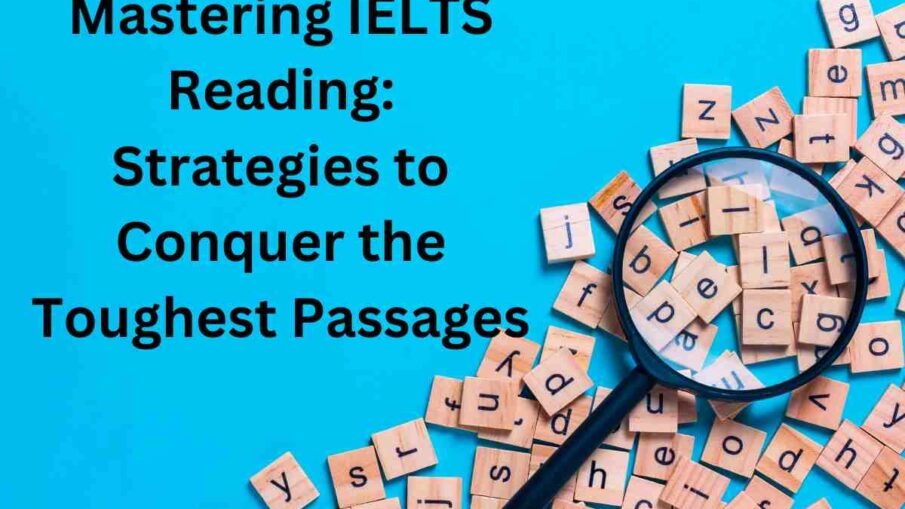Mastering IELTS Reading: Strategies to Conquer the Toughest Passages:- The International English Language Testing System (IELTS) is a globally recognized test, taken by millions to certify their English proficiency. One of the most challenging sections of this test is the Reading component. Within this component, candidates often stumble upon passages that can seem impossible. However, you can navigate through even the most challenging passages with the right strategies and insights.
Understanding the IELTS Reading Format
Before delving into the tactics, it’s pivotal to understand the layout of the IELTS Reading test. There are three passages, each with a set of questions. These passages increase in complexity, meaning the third is often the most challenging.
- General Training: This version is for those seeking work experience or immigration to an English-speaking country. It involves extracting information from newspapers, advertisements, and manuals.
- Academic: Targeted at those aiming for higher education in English-speaking nations, this version features three long texts, which can be descriptive, factual, or analytical.
Strategies to Conquer the Most Difficult Passages
1. Skim and Scan
Before diving deep into the passage, skim through it quickly to get a general idea. This will aid in understanding the central theme and the layout of the information. After skimming, scan for specific details, names, or data that might be the answer to the questions.
2. Focus on Topic Sentences
In academic texts, the first sentence of a paragraph, often termed the ‘topic sentence’, carries the main idea. Focusing on these gives you a concise summary of the entire passage.
3. Context is Key
If you come across a challenging word or phrase, don’t panic. Instead, try to deduce its meaning from the surrounding sentences. Often, the context provides enough clues to interpret unfamiliar terms.
4. Watch Out for Paraphrasing
IELTS loves to paraphrase. The answers are seldom lifted directly from the text. They might be reworded or presented in a different structure. Hence, it’s essential to be flexible in your approach and look for synonyms.
5. Keep an Eye on Time
Time management is crucial. Avoid spending too much time on a single question. If you’re stuck, move on and come back to it later. Remember, every question carries the same marks.
6. Answer All Questions
There’s no negative marking in IELTS. Even if you’re unsure, make an educated guess. Leaving it blank guarantees a lost mark, while guessing gives you a shot at scoring.
7. Practice Regularly
The best way to familiarize yourself with tough passages is through consistent practice. Regular exposure will reduce the intimidation factor and bolster your confidence.
Also, Read IELTS Speaking: Perfecting Pronunciation & Intonation
Common Pitfalls and How to Avoid Them
1. Overthinking the Questions
IELTS questions are designed to test your understanding, not to trick you. Avoid reading too much into the question. Stick to what the passage states.
2. Ignoring Instructions
Each set of questions has specific instructions. Whether it’s the word limit for answers or the format of the response, adhere to these guidelines strictly.
3. Not Reviewing Your Answers
Before submitting, allocate a few minutes to review your answers. Check for careless mistakes or overlooked questions.
Conclusion: Mastering IELTS Reading
The IELTS Reading section, particularly its toughest passages, can be daunting. However, with the strategies mentioned above, diligent practice, and a calm mindset, you can master this section. Remember, it’s not just about understanding English but also about employing the right techniques.

Leave a Reply